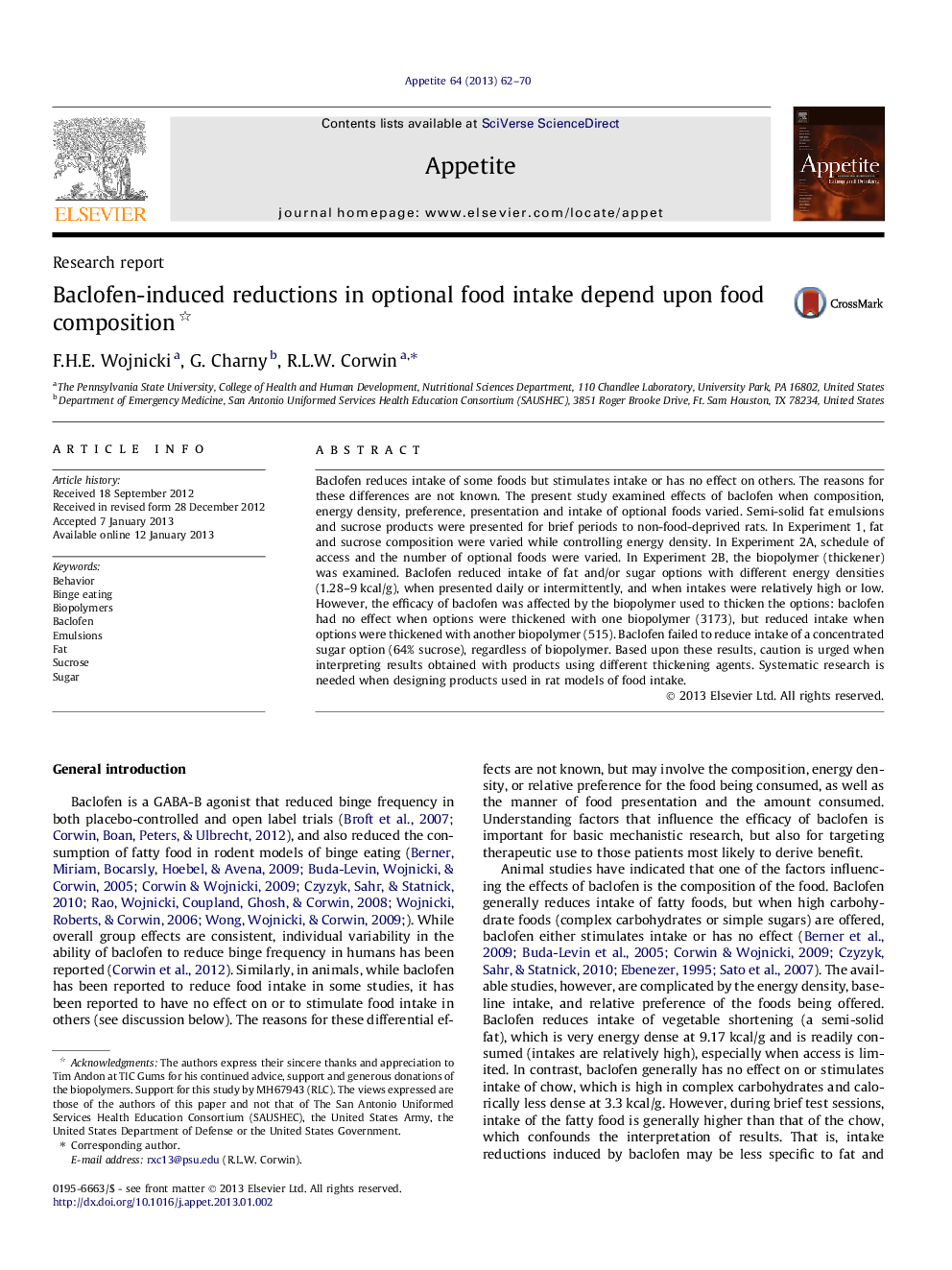| Article ID | Journal | Published Year | Pages | File Type |
|---|---|---|---|---|
| 939748 | Appetite | 2013 | 9 Pages |
Baclofen reduces intake of some foods but stimulates intake or has no effect on others. The reasons for these differences are not known. The present study examined effects of baclofen when composition, energy density, preference, presentation and intake of optional foods varied. Semi-solid fat emulsions and sucrose products were presented for brief periods to non-food-deprived rats. In Experiment 1, fat and sucrose composition were varied while controlling energy density. In Experiment 2A, schedule of access and the number of optional foods were varied. In Experiment 2B, the biopolymer (thickener) was examined. Baclofen reduced intake of fat and/or sugar options with different energy densities (1.28–9 kcal/g), when presented daily or intermittently, and when intakes were relatively high or low. However, the efficacy of baclofen was affected by the biopolymer used to thicken the options: baclofen had no effect when options were thickened with one biopolymer (3173), but reduced intake when options were thickened with another biopolymer (515). Baclofen failed to reduce intake of a concentrated sugar option (64% sucrose), regardless of biopolymer. Based upon these results, caution is urged when interpreting results obtained with products using different thickening agents. Systematic research is needed when designing products used in rat models of food intake.
► Semi-solid test foods with fat and sugar matched for energy density were used. ► Effects of baclofen were determined under a variety of conditions. ► Unexpectedly, the biopolymer used to thicken the foods altered intake and baclofen efficacy.
